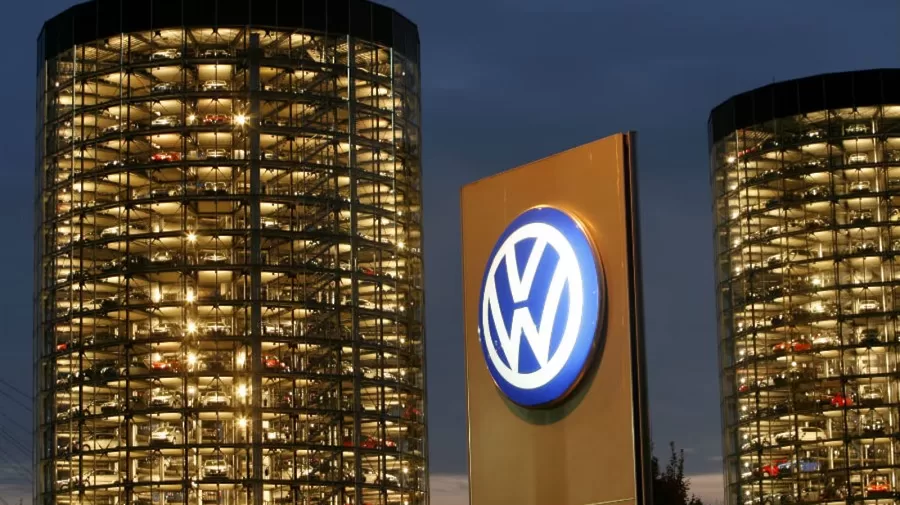Auto
Will Volkswagen’s Restructuring Plan Turn the Tide in Germany’s Struggling Economy?

- Germany narrowly escaped a recession in the third quarter of 2024, with GDP growth of 0.2% led by government and household spending.
- Volkswagen’s profit fell 21%, resulting in potential factory closures, job layoffs, and a 10% salary cut as part of the restructuring process.
- The German economy is facing issues such as increasing labour costs, competition from China, and declining industrial output, necessitating major reform to remain competitive.
Volkswagen’s recent issues serve as a stark reminder of the mounting economic challenges confronting Germany, the European Union’s largest economy. As the country narrowly avoids a recession, the historic automaker’s problems reflect larger challenges hurting the country’s economy. Volkswagen’s struggles highlight the difficult challenges that Germany will face as it deals with the forces that are altering its industrial and economic basis.
Volkswagen’s Crucial Role in the German Economy
Volkswagen, founded in 1937, became a cornerstone of Germany’s postwar recovery. The business not only led the push to revitalise German industry, but it also became a symbol of the country’s engineering prowess and manufacturing power. For decades, it was linked with German inventiveness, with famous models like the Beetle and VW Bus representing both the German automotive industry and a worldwide middle class.
Volkswagen’s success bolstered Germany’s status as a worldwide economic powerhouse, and its impact is far-reaching. Volkswagen employs about 680,000 people worldwide and has production sites all around the world, making it an important part of the German workforce. The company’s significance extends beyond automobile manufacture, as it directly affects the livelihoods of hundreds of thousands of people, including those employed in its supplier chain.
However, recent reports have indicated a dangerous change for both the corporation and the German economy.
Economic Struggle: Volkswagen’s Warning Sign
Volkswagen’s recent financial difficulties highlight broader systemic issues in Germany’s industrial foundation. The corporation announced a 21% reduction in operating profit for the first nine months of 2024, in stark contrast to the consistent increase it had experienced in recent years. This loss, combined with a drop in vehicle sales, particularly in China, illustrates Volkswagen’s struggles as it deals with greater competition, evolving consumer preferences, and rising operational expenses. Furthermore, rising energy costs and inflationary pressures in Germany compound the problem, limiting the company’s ability to invest for future growth.
Furthermore, the company’s internal challenges, such as restructuring expenses and an inability to keep up with rapid developments in the electric vehicle (EV) sector, have generated concerns. While Volkswagen has attempted to transition to EVs, its efforts have been plagued by delays, high production costs, and inefficiencies in software development. These difficulties have occurred at a time when China’s domestic EV manufacturers—BYD, NIO, and XPeng—are rapidly gaining market share not only in China but also in Europe.
The Wider Economic Context
Volkswagen’s problems are not merely a result of internal mismanagement, but also of bigger structural flaws in Germany’s economy. For many years, the country has relied heavily on its industrial sectors, particularly automotive manufacturing, to provide economic strength. However, this dependency now appears insecure. With global geopolitical concerns, rising energy costs, and fierce competition from low-cost markets such as China, Germany’s conventional manufacturing model is under threat.
According to recent research by the Federation of German Industries (BDI), one-fifth of Germany’s industrial output could be in danger by 2030, owing mostly to rising energy prices, dwindling markets, and the problem of keeping up with global innovation. Furthermore, an ageing population and increasing labour expenses erode Germany’s economic advantage.
Volkswagen’s troubles are symbolic of broader economic trends. The automotive industry, which continues to account for 5% of Germany’s GDP and employs hundreds of thousands of people, has become a microcosm of the country’s problems. As the country struggles with high energy costs, low productivity, and an unpredictable global trade environment, its core industries, such as automotive production, are under strain.
Implications for Germany’s Future
The stakes are high. Volkswagen’s financial woes might reverberate throughout the German economy, particularly given the company’s status as the country’s largest industrial employer. A prospective restructuring, factory closures, and job cutbacks might have far-reaching effects, not only for Volkswagen’s employees, but also for its suppliers, dealers, and the local economies that rely on its activities.
Overall, Germany’s economic outlook remains dismal. Despite a minor increase in GDP in the third quarter of 2024, the country is experiencing a long period of stagnation. The International Monetary Fund (IMF) forecasts zero growth for Germany this year, making it one of the lowest performers among major countries. While there is some hope that lower inflation may improve demand in the next years, a complete revamp of Germany’s economic model appears required to assure long-term success.
Volkswagen and the Future of Germany’s Economy
Volkswagen’s troubles highlight the larger issues confronting Germany’s manufacturing base. While the corporation has long represented German engineering brilliance, it is now at a crossroads, forced to face the reality of a changing global economy. The transition to electric vehicles, fierce competition from China, rising energy prices, and the strain of an ageing workforce all add to the company’s problems.
The German economy is at a critical point. Volkswagen is not only a substantial portion of the German economy, but also a symbol of the country’s manufacturing legacy. As Volkswagen faces its issues, the larger question remains: can Germany adapt to the changing global economic scene and preserve its role in the future?
In light of these problems, governments must decide whether Germany’s old manufacturing model is viable or if a considerable adjustment is required to maintain its economic strength. If Volkswagen and Germany’s industrial sector are to survive in the future decades, a complete national regeneration may be required.


















































